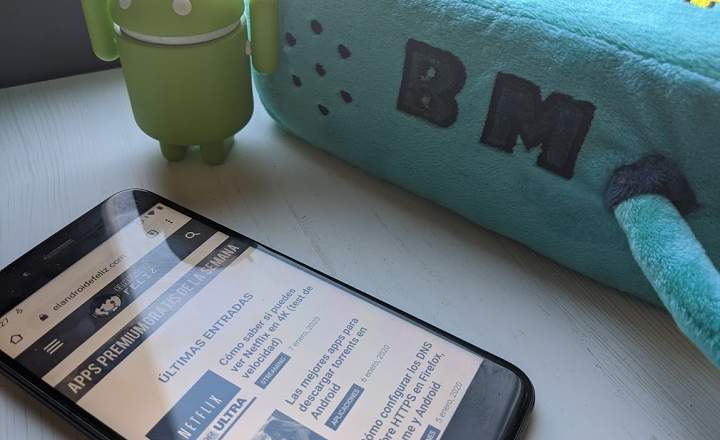
PayPal has been one of the most used methods for sending and receiving money over the Internet for years. As much as bitcoin is being talked about day in and day out, if we make an online purchase, want to leave money for a friend or are thinking of starting a business, we will most likely continue to use PayPal.
Being such a popular service, it is normal that there are people who try to get a slice of the most clueless users, and that is precisely what we are going to talk about today: of all those scams and deceptions that use PayPal as a decoy or work tool to leave us the bank account shaking and steal even the communion photos.
Advance payment request
This scam is as old as your grandfather's modem. Since there is Internet, there have been few who have received an email from a stranger indicating that we have received a millionaire inheritance, and that we must pay an amount of money through PayPal to carry out the paperwork and that they make us the transfer.
Lately, the message from a high-ranking political official who has billions seized and asks us to leave him some cash to unlock his money and return the favor multiplied by 1000 has also become quite common.
The best way to avoid this type of deception is to discard the messages and ignore them.
"There is a problem with your account" or "Your account is going to be canceled"
This is a fairly common was, and consists of receiving a message in which they tell us that there is a problem with our Paypal account and that we must verify some data. For this they offer us a link in which we must click to supposedly enter PayPal and enter our username and password. The link redirects to a phishing website that collects our credentials. Once the thieves have our access data, they proceed to empty our account.

To avoid this type of scam, it is important that we know that PayPal will never ask us to enter our username and password anywhere other than the PayPal login page. If we detect this type of hoax, it is advisable to inform PayPal by sending an email to [email protected]. It is also advisable to update the password from time to time.
Identity fraud
Another scam that usually goes hand in hand with the previous one is spoofing or "identity theft". Most mail services allow us to write whatever we want in the sender field, which many take advantage of to impersonate other people or companies.
Thus, we can receive an email sent by "PayPal Support" telling us any milonga in order for us to do what they ask us and they can steal our account, although if we look at it, the email is sent from [email protected] (or similar).

To avoid falling prey to this type of scam, we must always check the sender's email address. There is no problem in opening this type of email, but it is important not to click on any link.
Charities
People of good faith are usually quite sensitive to the pain of others, and there are not a few who participate from time to time by donating money to charities. Unfortunately, there are also many scams that pose as charities: they usually appear when some misfortune or natural catastrophe occurs, and the truth is that they are not easy to detect.
If we want to avoid this type of scam, before making any donation it is advisable to check the authenticity of the collection. For this we can do an Internet search, as well as consult the following web pages recommended by PayPal itself:
- //www.charitynavigator.org
- //www.bbb.org/us/charity
- //www.charitywatch.org
If we cannot verify the authenticity of the organization in any of these ways, it is most likely fake.
Overpaying for a product
Scammers are getting more and more sophisticated, and this is a good example of it. The deception is done in 3 diabolical steps:
- The buyer purchases a product or service.
- Instead of paying the price of the product, the buyer makes a higher payment than is established.
- The buyer requests the seller to refund the difference.
The trick here is that the buyer asks to make the transfer to a different PayPal account than the one you originally used to pay for the item. Finally, the payment will be canceled and the seller will lose that "extra" money that he returned to the customer.
If we are sellers and we want to avoid this type of scams, the first thing we must bear in mind is that a customer will never overpay for a product. If you do, it is best to cancel the sale and not ship the product.
Shipping scams
This scam is used by less scrupulous buyers on the Internet, so it is advisable to be very careful if we have an online store. The scam consists of the buyer choosing a shipping method, contacting the courier company within days to change the delivery address, and then claiming the seller indicating that it has not reached its destination. A really dirty trick.
Another variant of this scam is to use a different shipping address than the one that appears in the buyer's PayPal account and then claim that the product has not arrived.
If we are sellers it is important that we always check and verify the buyer's address just before sending the product. PayPal also recommends that items not be shipped to any address other than the one listed on the customer's PayPal account.
EBay sellers
This deception occurs when someone offers us to collaborate in a business or sale, usually through eBay or our own website. Then he asks us to create a new PayPal account or update the one we already have by entering the company's email account. In this way, we will have to make purchases, pay suppliers and so on, as part of our work.
This is very dangerous, since if the company is a sham they can accuse us of carrying out fraudulent transactions and hold us responsible. To avoid this, it is best not to give access to our PayPal account or change any of our personal data.
How to detect fake PayPal accounts
Mail scams are the order of the day. These are some details that we must take into account if we believe that we have received a false email from PayPal.
- PayPal emails always arrive from an address @ paypal.com (or @ paypal.es in the case of Spain). Any email with a different domain is fake.
- In all PayPal emails we are called by our first and last name (or the name of our company). If not, it is a scam.
- PayPal will never ask you for your bank details in the mail or the answer to your security question. If you receive an email asking for this information, it is a scam.
- PayPal emails never include attachments or ask you to download or install anything on your device.
Finally, mention that scams through PayPal always tend to be urgent "Make a small payment within 24 hours to confirm your account", "Click here to get a discount coupon now" or similar. It is also common to receive phishing emails in which they tell us that suspicious behavior has been detected in our account and that we must click on a link to verify it.
In the end, it is about applying common sense, but especially when we are dealing with services as critical as payment through the Internet, it is essential that we have all our senses alert to any possible irregularity that draws our attention.
You have Telegram installed? Receive the best post of each day on our channel. Or if you prefer, find out everything from our Facebook page.
